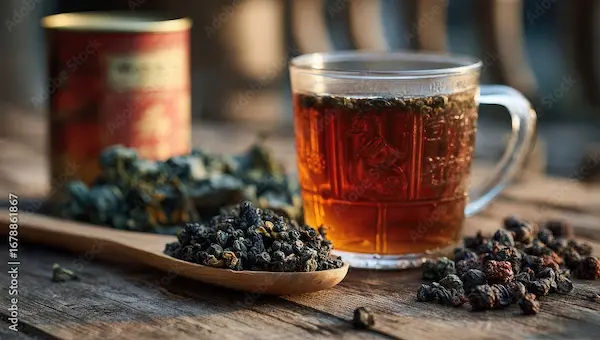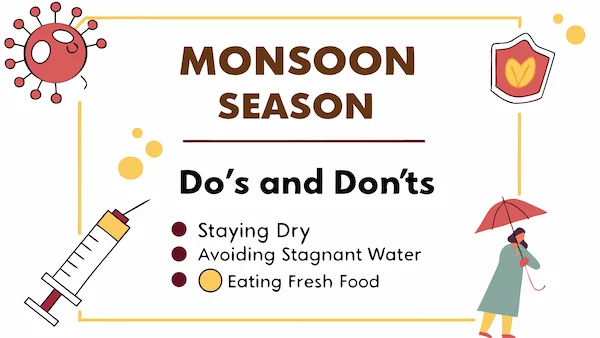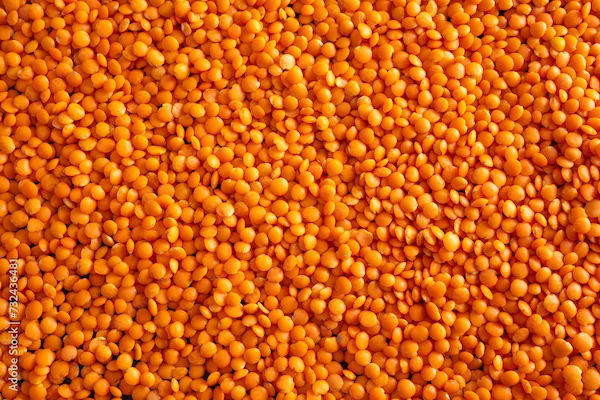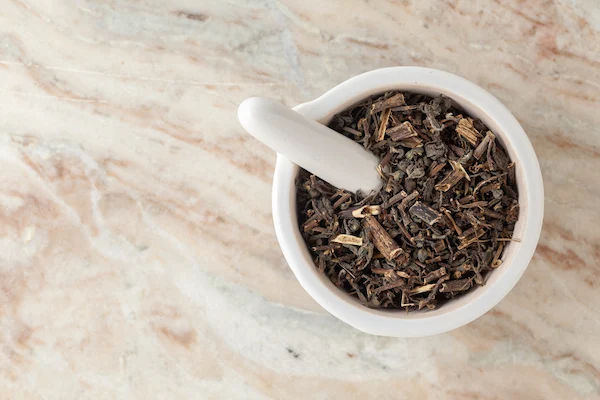Tulsi (Holy Basil): Incredible Health Benefits and Uses
Discover Tulsi benefits and safe uses. Learn if holy basil is truly an immunity booster, plus science, how to take it, side effects, and FAQs.

Written by Dr. Mohammed Kamran
Reviewed by Dr. Dhankecha Mayank Dineshbhai MBBS
Last updated on 21st Nov, 2025
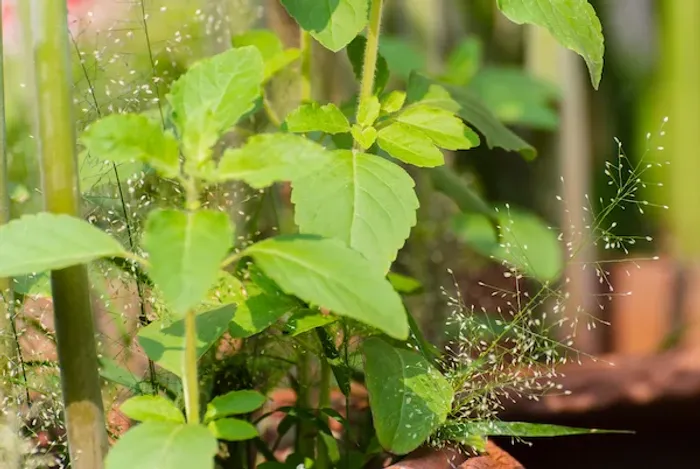
Introduction
Tulsi, also known as holy basil (Ocimum tenuiflorum or Ocimum sanctum), is a fragrant medicinal herb long valued in Ayurveda for everyday wellness and spiritual rituals. As global interest grows, many people are exploring Tulsi benefits—from stress support to general immune wellbeing—and wondering whether it truly works as an “immunity booster.” This guide explains what current research suggests, how to use tulsi safely, who should avoid it, and practical ways to include it in your routine.
What Is Tulsi (Holy Basil)?
The basics of tulsi are:
- A member of the mint family with a peppery, clove-like aroma distinct from culinary basil.
- Traditionally used in India for stress resilience, respiratory comfort, and everyday wellness.
- Common forms include fresh leaves, dried leaves for tea, capsules, tablets, tinctures, and essential oil (not for ingestion).
Consult a Top General Practitioner for Personalised Advice
Top Tulsi Benefits at a Glance
Current evidence from human studies, laboratory research, and long-standing traditional use suggests tulsi may:
- Support the body’s stress response and mood balance.
- Provide antioxidant and anti-inflammatory actions.
- Help maintain normal blood sugar alongside lifestyle measures.
- Offer modest support for cholesterol levels in small studies.
- Display antimicrobial properties in laboratory tests.
- Soothe mild respiratory discomfort, based largely on traditional use.
Important Reminder
Research remains limited and evolving. Large, well-controlled studies are still needed. Always speak with a healthcare professional before starting any supplement, especially if you take medicines or have health conditions.
Is Tulsi Really an Immunity Booster?
Claims about Tulsi as an “immunity booster” should be approached cautiously. No herb can intensify immune activity instantly or prevent illness on its own. Evidence-based immune support still relies on essentials such as:
- Up-to-date vaccinations
- Adequate sleep
- A balanced diet
- Regular movement
- Effective stress management
- Avoiding smoking
Where Tulsi Fits In
Tulsi’s antioxidant, anti-inflammatory, and stress-modulating properties may contribute indirectly to overall immune wellbeing. Think of Tulsi as a supportive addition to a healthy lifestyle rather than a quick fix or cure-all.
Science-Backed Tulsi Benefits (What We Know So Far)
The benefits include:
Stress, Calm, and Resilience
What We Know
- Tulsi is widely regarded as an adaptogen—an herb believed to help the body cope with physical and emotional stress.
- Early research and traditional use suggest it may promote a sense of calm, support mental clarity, and reduce perceived stress.
Why It Matters
- Chronic stress affects sleep, emotional well-being, digestion, and even immune balance.
- Herbs that support resilience may complement practices such as mindfulness, exercise, and good sleep habits.
The Bottom Line
- Early findings are encouraging, but larger, long-term human trials are required.
Antioxidant and Anti-Inflammatory Support
What We Know
- Tulsi contains compounds such as eugenol and rosmarinic acid, shown in lab studies to combat oxidative stress and inflammation.
Why It Matters
- Oxidative stress and chronic low-grade inflammation play a role in many health concerns.
Antioxidant-rich foods and herbs form part of a balanced, protective diet.
The Bottom Line
- Tulsi can be a supportive daily addition, but should not replace broader healthy eating patterns.
Blood Sugar and Metabolic Health
What We Know
- Small human studies suggest Tulsi may modestly reduce fasting and post-meal blood sugar levels.
Some research reports improvements in metabolic markers when Tulsi is used alongside dietary changes and exercise.
Why It Matters
- Stable blood sugar supports energy, mood, and long-term metabolic health.
The Bottom Line
- People with diabetes or prediabetes should not self-treat with tulsi, as it may heighten the risk of low blood sugar when combined with medication. Always seek medical guidance.
Heart Health: Cholesterol and Triglycerides
What We Know
- Limited evidence reports modest improvements in cholesterol and triglycerides with Tulsi supplementation.
Why It Matters
- Heart health relies on multiple factors: nutrition, exercise, sleep, and prescribed treatment when needed.
The Bottom Line
- Tulsi may be a complementary strategy, but must not replace clinically recommended therapies.
Antimicrobial and Oral Health
What We Know
- Tulsi demonstrates antimicrobial activity in test-tube studies against certain bacteria, fungi, and viruses.
- Some oral-care products include tulsi extracts for gum and mouth support.
Why It Matters
- Oral health affects overall well-being.
The Bottom Line
- Laboratory results are not the same as clinical effectiveness. Continue evidence-based dental care and consider Tulsi as a supportive ingredient.
Respiratory and Cold Symptom Support
What We Know
- Tulsi has long been used in traditional medicine to soothe coughs and mild cold symptoms.
Warm tulsi tea with ginger or honey is a classic home remedy.
The Bottom Line
- Traditional support is strong, but modern scientific evidence remains limited. Seek medical advice for persistent or severe symptoms.
How to Use Tulsi Safely?
The tips for the use of Tulsi are:
Forms and Everyday Uses
- Tea: Steep 1–2 teaspoons of dried tulsi (or a tea bag) for 5–10 minutes.
- Fresh leaves: Add to warm water, broths, or chew a few leaves after washing.
- Capsules/tablets: Widely available but vary greatly in quality and strength.
- Tinctures: Useful for flexible dosing; follow product instructions.
- Essential oil: For topical or aromatherapy use only; not safe for ingestion.
Practical Tips
Some practical tips include:
- Start low and go slow: Begin with one cup of tea daily and observe effects.
- Choose quality: Seek third-party tested brands (e.g., USP, NSF, ConsumerLab).
- Keep it simple: Many people enjoy tulsi tea during stressful periods or colder seasons.
Who Should Avoid Tulsi and Possible Side Effects
Although tulsi is commonly consumed as tea or seasoning, supplements may raise risks for certain individuals. The guidance on when to avoid and possible side effects are:
Possible Side Effects
- Digestive discomfort: Mild nausea or stomach upset in some people.
- Blood sugar effects: May lower blood sugar and increase risk of hypoglycaemia when used with diabetes drugs.
- Bleeding risk: May affect blood clotting and increase bleeding risk alongside anticoagulants or before surgery.
- Hormonal and reproductive concerns: Not advised during pregnancy, breastfeeding, or when trying to conceive.
Who Should Avoid or Use Extra Caution
Avoid Tulsi in the following scenarios:
- Pregnant or breastfeeding individuals
- Those trying to conceive
- People on anticoagulants, antiplatelet drugs, or diabetes medications
- Anyone scheduled for surgery
- Those with chronic medical conditions without medical guidance
Potential Drug Interactions
Some potential drug interactions are:
- Blood thinners/antiplatelets: May heighten bleeding risk.
- Diabetes medications: Additive effects may cause low blood sugar.
- Sedatives/CNS depressants: Combined calming effects are possible.
Always check with a clinician or pharmacist before combining Tulsi with any medication.
Is Tulsi Right for You? A Quick Self-Check
Let us see when and how Tulsi is right for you:
- If your goal is general wellness or stress support, tulsi tea may be suitable.
- If you want an immunity booster, focus on established habits first; Tulsi can only complement these.
- If you take prescription medication or have chronic conditions, consult a medical professional before using tulsi supplements.
Buying and Quality Tips
The buying and quality tips are:
- Look for third-party testing seals such as USP, NSF, or ConsumerLab.
- Check for the correct species name: Ocimum tenuiflorum or Ocimum sanctum.
- Review the label for extract standardisation and batch numbers.
- Choose reputable brands with clear sourcing and testing practices.
Simple Tulsi Tea Recipe
The recipe is:
Ingredients
- 1–2 teaspoons dried tulsi (or 1 tea bag)
- 8–10 ounces hot water
Optional Add-Ins
- Thin slices of fresh ginger
- A squeeze of lemon
- 1 teaspoon honey
Directions
- Bring water close to boiling and pour it over the tulsi.
- Steep for 5–10 minutes.
- Strain, add optional ingredients, and enjoy warm.
Final Takeaway
Tulsi is a time-honoured herb with a pleasant taste and a growing body of supportive research. Many people use it for stress support and general wellness. While you’ll often see tulsi benefits hyped as an immunity booster, the best approach is balanced: enjoy tulsi tea or a well-made supplement as part of a healthy lifestyle, and rely on proven medical guidance for prevention and treatment. As always, if you have health conditions or take medications, talk with your healthcare provider before adding tulsi to your routine.
Conclusion
Tulsi is a deeply rooted traditional herb with promising modern applications, especially for stress support and general well-being. Its antioxidant and anti-inflammatory actions may complement a healthy lifestyle, while tulsi tea offers a simple daily ritual with calming benefits. Although research is growing, Tulsi should not replace medical treatment or proven preventive measures. Use it mindfully, choose quality products, and speak with a healthcare professional if you take medications or have underlying conditions. With thoughtful use, Tulsi can be a gentle and supportive addition to everyday wellness.
Consult a Top General Practitioner for Personalised Advice
Consult a Top General Practitioner for Personalised Advice

Dr. Mainak Baksi
General Practitioner
13 Years • MBBS , MD (MPH)
Howrah
Mainak Baksi Clinic, Howrah
(50+ Patients)

Dr. Rajib Ghose
General Physician/ Internal Medicine Specialist
25 Years • MBBS
East Midnapore
VIVEKANANDA SEBA SADAN, East Midnapore

Dr. Ashita Kuruvilla
General Physician/ Internal Medicine Specialist
7 Years • MBBS
East Midnapore
VIVEKANANDA SEBA SADAN, East Midnapore

Dr Sujay P R
General Physician/ Internal Medicine Specialist
4 Years • MBBS
Bengaluru
Apollo Medical Center, Marathahalli, Bengaluru
Dr. Srilekhya
Internal Medicine Specialist Diabetologist
7 Years • MBBS, MD (GENERAL MEDICINE)
Bengaluru
Apollo Medical Center, Marathahalli, Bengaluru
Consult a Top General Practitioner for Personalised Advice

Dr. Mainak Baksi
General Practitioner
13 Years • MBBS , MD (MPH)
Howrah
Mainak Baksi Clinic, Howrah
(50+ Patients)

Dr. Rajib Ghose
General Physician/ Internal Medicine Specialist
25 Years • MBBS
East Midnapore
VIVEKANANDA SEBA SADAN, East Midnapore

Dr. Ashita Kuruvilla
General Physician/ Internal Medicine Specialist
7 Years • MBBS
East Midnapore
VIVEKANANDA SEBA SADAN, East Midnapore

Dr Sujay P R
General Physician/ Internal Medicine Specialist
4 Years • MBBS
Bengaluru
Apollo Medical Center, Marathahalli, Bengaluru
Dr. Srilekhya
Internal Medicine Specialist Diabetologist
7 Years • MBBS, MD (GENERAL MEDICINE)
Bengaluru
Apollo Medical Center, Marathahalli, Bengaluru
More articles from General Medical Consultation
Frequently Asked Questions
Is Tulsi the same as the basil used in cooking?
No. Culinary basil (Ocimum basilicum) is used in dishes like pesto, whereas tulsi has a spicier, clove-like aroma and is mainly used in herbal preparations.
Can Tulsi act as an immunity booster?
Tulsi may indirectly support immune wellbeing through stress resilience and antioxidant effects, but it is not a magic immunity enhancer.
How much Tulsi tea can I drink daily?
Many people enjoy 1–2 cups per day. Start with one cup and see how you feel. Consult your clinician if you take medication or have health concerns.
Are Tulsi supplements safe?
They can be for many adults, but safety depends on dose, product quality, and your health status. Tulsi may interact with blood thinners and diabetes medications.
Can Tulsi help with stress?
Early evidence and traditional use suggest that tulsi may promote calm and improve stress resilience. Pair it with healthy sleep, mindfulness, and physical activity.
